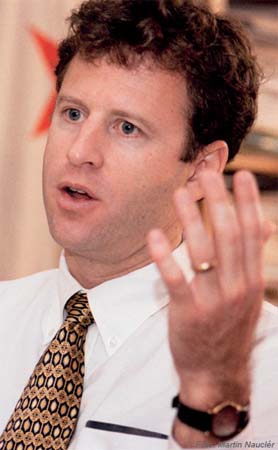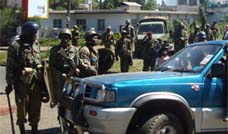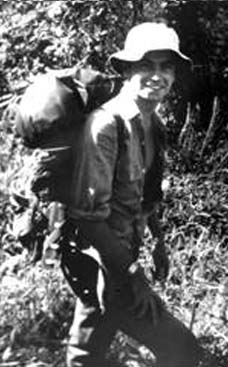
After meeting again recently with some of our top economic aid and reconstruction experts on Iraq, I have concluded they continue to do remarkable things at considerable personal risk and hardship in Iraq. Hospitals and electricity plants are being built, transportation infrastructure improved, water and waste treatment plants constructed. But the other striking, and lamentable, fact about our economic efforts in Iraq is that for the most part we don't have the foggiest idea how well they are working. That has to change. To be fair, some things are known. Inflation is within reasonable bounds. Oil revenues are up quite a bit due to the price of petroleum, even if production has increased only very gradually. Due largely to the improved security environment, electricity production and distribution finally took a substantial step forward in 2007, for the first time since the 2003 invasion. Without even counting the informal electricity sector, which has itself grown, official numbers have increased 10 percent to 20 percent. Cell phone ownership and usage have gone through the roof; national port capacity has increased substantially; the Internet is making real inroads. Michael O'Hanlon, a Senior Fellow at the Brookings Institute and a Visiting Lecturer at Princeton University, served as a Peace Corps Volunteer in Congo Kinshasa.
Michael O'Hanlon writes: Iraq's unknown economy
Iraq's unknown economy
By Michael O'Hanlon
January 6, 2008
While Iraq's security situation improves dramatically, and its political scene muddles along with only very limited and mostly local steps toward gradual Sunni-Shia-Kurd rapprochement, what is happening on the economic side?
As students and practitioners of counterinsurgency and nation building well know, the economy is the third pillar of any successful mission, along with the security and political environments, and can never be neglected.
After meeting again recently with some of our top economic aid and reconstruction experts on Iraq, I have concluded they continue to do remarkable things at considerable personal risk and hardship in Iraq. Hospitals and electricity plants are being built, transportation infrastructure improved, water and waste treatment plants constructed. But the other striking, and lamentable, fact about our economic efforts in Iraq is that for the most part we don't have the foggiest idea how well they are working. That has to change.
To be fair, some things are known. Inflation is within reasonable bounds. Oil revenues are up quite a bit due to the price of petroleum, even if production has increased only very gradually. Due largely to the improved security environment, electricity production and distribution finally took a substantial step forward in 2007, for the first time since the 2003 invasion. Without even counting the informal electricity sector, which has itself grown, official numbers have increased 10 percent to 20 percent. Cell phone ownership and usage have gone through the roof; national port capacity has increased substantially; the Internet is making real inroads.
Less happily, household fuel supplies are nudging upward slightly, but only after a couple years of stagnation or even decline relative to demand. Foreign investment remains very modest due to ongoing uncertainty about Iraq's future — and concern about the violence of the present. Unemployment remains quite severe.
Beyond those conclusions, though, we don't know much. While the U.S. government can point to many individual projects that are progressing or reaching the ribbon-cutting phase, we do not have a sense of overall national trends. How many Iraqis get water? How many have their trash picked up, or sewage removed dependably from their neighborhoods? How many get the water they need to irrigate their crops? How many get basic health care when they need it? How many of their kids are in school? And how do all these numbers compare to last year, or the latter year's of Saddam's rule — important benchmarks in shaping Iraqis' perceptions of their government's performance (not to mention that of the United States)?
The answers are blowing in the wind. American aid agencies either do not have viable strategies to collect meaningful data or believe they must defer to sovereign Iraqi authorities on such matters.
With American aid dollars drying up even as Iraqi government funds skyrocket due to the high price of crude oil, it is increasingly clear that while security remains in large part an American task, economic reconstruction and development must be led by Iraqis. So we bow out of the debate at times.









